People in the flood-hit areas of Nghe An need to be especially careful with diseases.
(Baonghean.vn) - During the rainy season in Nghe An, the most common diseases and epidemics are those related to the digestive tract. The most dangerous diseases are dengue fever and whitmore disease (also known as flesh-eating bacteria).
Nghe An Newspaper had a conversation with Dr. Que Anh Tram - Director of the Tropical Disease Center, Provincial General Hospital.
PV: It is known that,rainy seasonis the time when many epidemics and diseases develop and break out. As someone who directly monitors and treats infectious diseases, can you tell us what dangerous epidemics and diseases can occur in Nghe An during this season and the specific nature of each epidemic and disease?
Dr. Que Anh Tram:Through monitoring at the Tropical Disease Center, Provincial General Hospital, I found that, during the rainy season in Nghe An, the most common diseases and epidemics are diseases related to the digestive tract; the most dangerous diseases and epidemics are:dengue feverand whitmore disease (also known as flesh-eating bacteria or forgetfulness)... With digestive diseases, the main cause is unhygienic eating and drinking. Especially the use of spoiled food. If in the dry season, spoiled food can be detected by smell, then in the rainy season, the temperature is lower, the food has spoiled but people do not detect it and still use it.
 |
| Dr. Que Anh Tram - Director of the Tropical Disease Center, Provincial General Hospital. Photo: Thanh Chung |
Dengue fever is an acute infectious disease. The disease is caused by the Dengue virus. Dengue fever is transmitted from person to person by the Aedes Aegypti mosquito. The disease often appears and causes epidemics during the rainy season, in densely populated areas with poor environmental sanitation. Anyone can get the disease. Since the beginning of the year, Nghe An has had 3 outbreaks, including Dien Chau district (old outbreak) and 2 new outbreaks in Anh Son and Con Cuong districts.
Dengue fever often progresses rapidly, with symptoms becoming more severe in each stage. From the time of onset with the first high fever, the disease will gradually recover in the following 7-10 days. In the early stages, the patient has a continuous high fever, difficulty reducing fever, headache, body aches... Symptoms are similar to fever caused by other viruses and can only be distinguished by testing. However, the most dangerous stage is the 4th to 7th day, with strong, rapid complications such as increased vascular permeability, causing blood concentration, thrombocytopenia, shock, and multiple organ failure. When a patient has complicated dengue fever, the plasma leakage mechanism is likened to a water pipe that has broken all over. At this point, doctors and nurses cannot treat it. Severe complications will lead to death.
According to statistics, in Nghe An we have not had any deaths due to dengue fever. This can be explained by the fact that there are cases of death due to the disease that the health authorities do not know about. We are lucky because there have not been any cases of rapid and severe complications.
No less dangerous than dengue feverWhitmore's disease. This is an infectious disease that can infect humans or animals. The cause of the disease is the bacterium Burkholderia pseudomallei, which exists in contaminated water and soil. People get the disease by breathing in dust or contaminated water droplets, drinking contaminated water, and contact with contaminated soil, especially through scratches on the skin. Very rarely, people get the disease from other people.
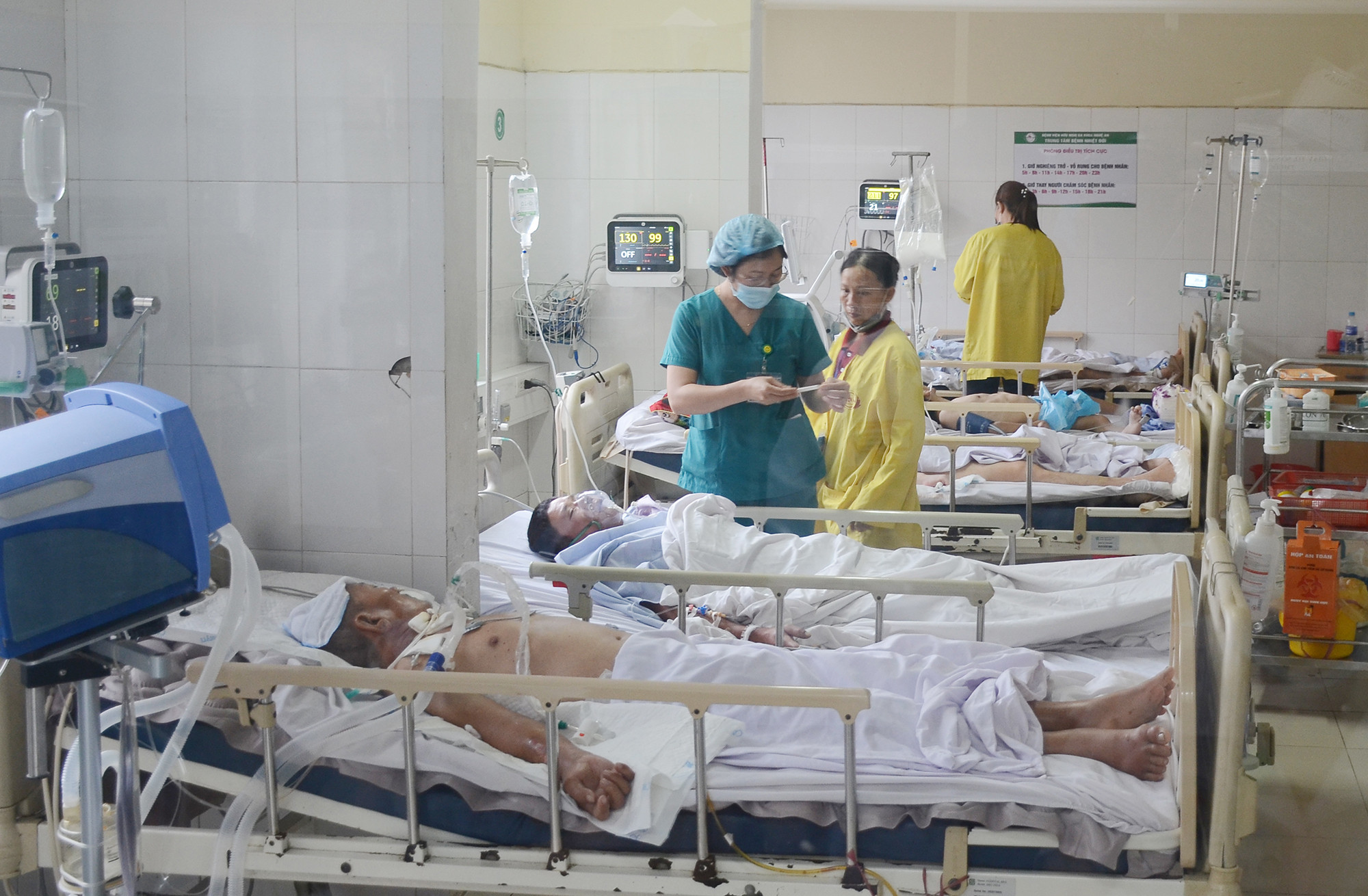 |
| Many cases of severe blood infection due to Whitmore's disease are being actively treated. Photo: Thanh Chung |
Currently, it is the rainy season, which is a favorable time for the development of Whitmore bacteria. In Nghe An, the land with a lot of Whitmore bacteria is in Quy Hop, Nghia Dan. The disease has no clear symptoms and is easily confused with many other diseases. Therefore, when infected, people still think it is a normal infection, wash the wound, disinfect, and take a few antibiotics. Therefore, Whitmore patients usually go to the hospital when the disease becomes severe. Even when the diagnosis of Whitmore disease is confirmed, treatment is extremely difficult. Patients often have to use specific antibiotics, high doses of intravenous attack continuously for at least 2-4 weeks, then use antibiotics for maintenance for about 3-6 months.
Not everyone exposed to Whitmore bacteria gets sick. The bacteria only multiply and develop to cause disease when encountering favorable factors, which are people with low resistance, reduced resistance or children. Currently, the mortality rate of Whitmore disease can be up to 50 - 60%. In Nghe An, there have been 2 cases of Whitmore death. These are 2 young patients, the disease progresses extremely quickly, shock cannot be saved, even with blood filtration.
PV: With these 3 diseases, what do we need to do to prevent and control them, especially with the 2 diseases that do not have clear distinguishing signs, and we cannot know when they may have complications and become serious: dengue fever and Whitmore?
Dr. Que Anh Tram:To prevent diarrhea in particular and the digestive tract in general, everyone needs to follow the principle of "eating cooked food, drinking boiled water", not eating spoiled food. Next, everyone also needs to take measures such as: Washing hands with soap and clean water regularly, especially before eating, after defecation, contact with sick people; using and preserving clean water sources; using hygienic toilets, keeping the environment clean; killing insects that can transmit diseases such as flies, cockroaches and rats.
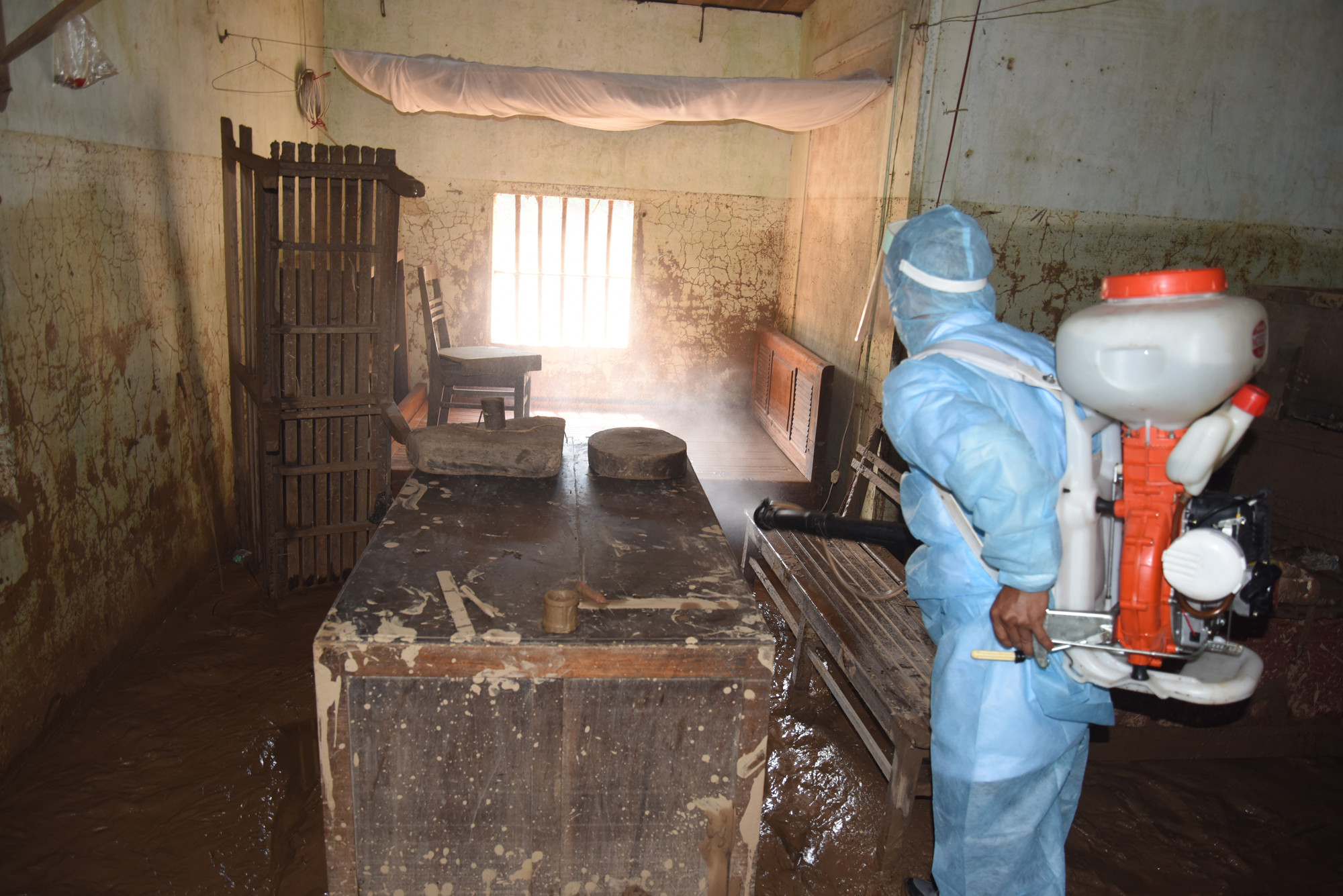 |
| Spraying poison and disinfecting flooded areas to prevent dengue fever and other diseases. Photo: Thanh Chung |
For dengue fever, there is currently no specific treatment or vaccine. Therefore, the most effective way to prevent the disease is to avoid being bitten by mosquitoes. When sleeping, we should sleep under mosquito nets, impregnated with chemicals; spray mosquito repellent and burn mosquito coils in the house. In addition, we must clean the house, clear bushes around the house and collect waste, unclog sewers; kill larvae in water containers, and turn over unused water containers; regularly clean and clear stagnant water... Everyone needs to remember: Without mosquitoes, there is no dengue fever. Killing mosquitoes, in addition to eliminating the intermediate factor that transmits the disease from sick people to healthy people; eliminate pathogens when mosquitoes have the ability to transmit the Dengue virus to the next generation.
To prevent Whitmore disease, there is no other way than for people to use protective gear when working in the fields, in contact with soil and dirty water; do not let children play with soil and dirty water. However, it must be said that this is very difficult to do... As mentioned, Whitmore is a forgotten disease because people rarely mention it. When people are infected with bacteria, the development of bacteria is quite silent. It develops strongly on the basis of immunocompromised patients, such as diabetic patients. The most obvious sign to detect Whitmore early is open, infected wounds that take a long time to heal.
Let me reiterate: To prevent, control and treat two diseases that have no clear signs of differentiation, and it is impossible to know when complications and serious developments may occur, such as dengue fever and Whitmore's, and to avoid the risk of death, there is no other way but to go to a medical facility immediately when people feel any health problems.
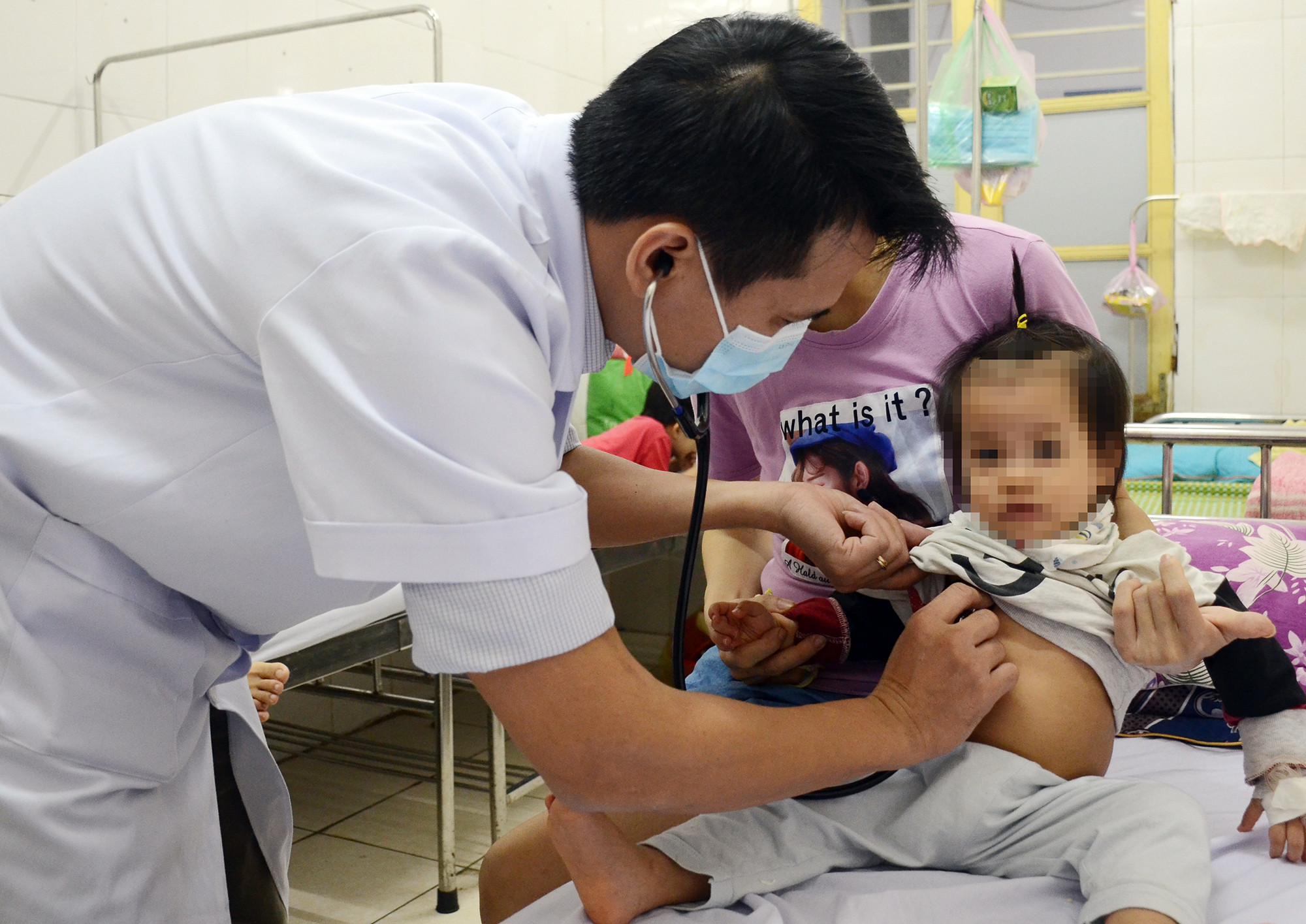 |
| During the rainy season, children are at high risk of contracting gastrointestinal diseases, hand, foot and mouth disease, and flu. Photo: Thanh Chung |
PV: It is currently the rainy season, and according to scientific research, this weather condition is an ideal environment for the dangerous Covid-19 epidemic to break out. In Vietnam, what is the risk of Covid-19 during this time? What are the concerns that need attention and focus?
Dr. Que Anh Tram:The current Covid-19 epidemic situation is still very complicated. A new wave of the epidemic has appeared. Currently, the number of infected people in the world has reached nearly 45 million people, nearly 1.2 million people have died. In Europe, facing the new wave of the epidemic, a series of European countries have decided to re-impose the blockade. In Asia, the Covid-19 epidemic has returned to some countries and many countries have not been able to control the epidemic. The upcoming winter season is forecasted to continue to be very fierce.
In Vietnam, up to now, there have been 59 days without a recorded case in the community. It must be said that Vietnam is doing a very good job in fighting the epidemic. The reason for the success is that Vietnam strictly implements 14-day centralized medical isolation for people entering the country; then continues to isolate for 14 days at the place of residence and family. The isolation has helped us to isolate and test to clearly identify infected people as well as related F1 and F2. After completing 14 days of centralized medical isolation, if the quarantined person tests positive for Covid-19, the virulence of the disease is also very low, the risk of infection is not high.
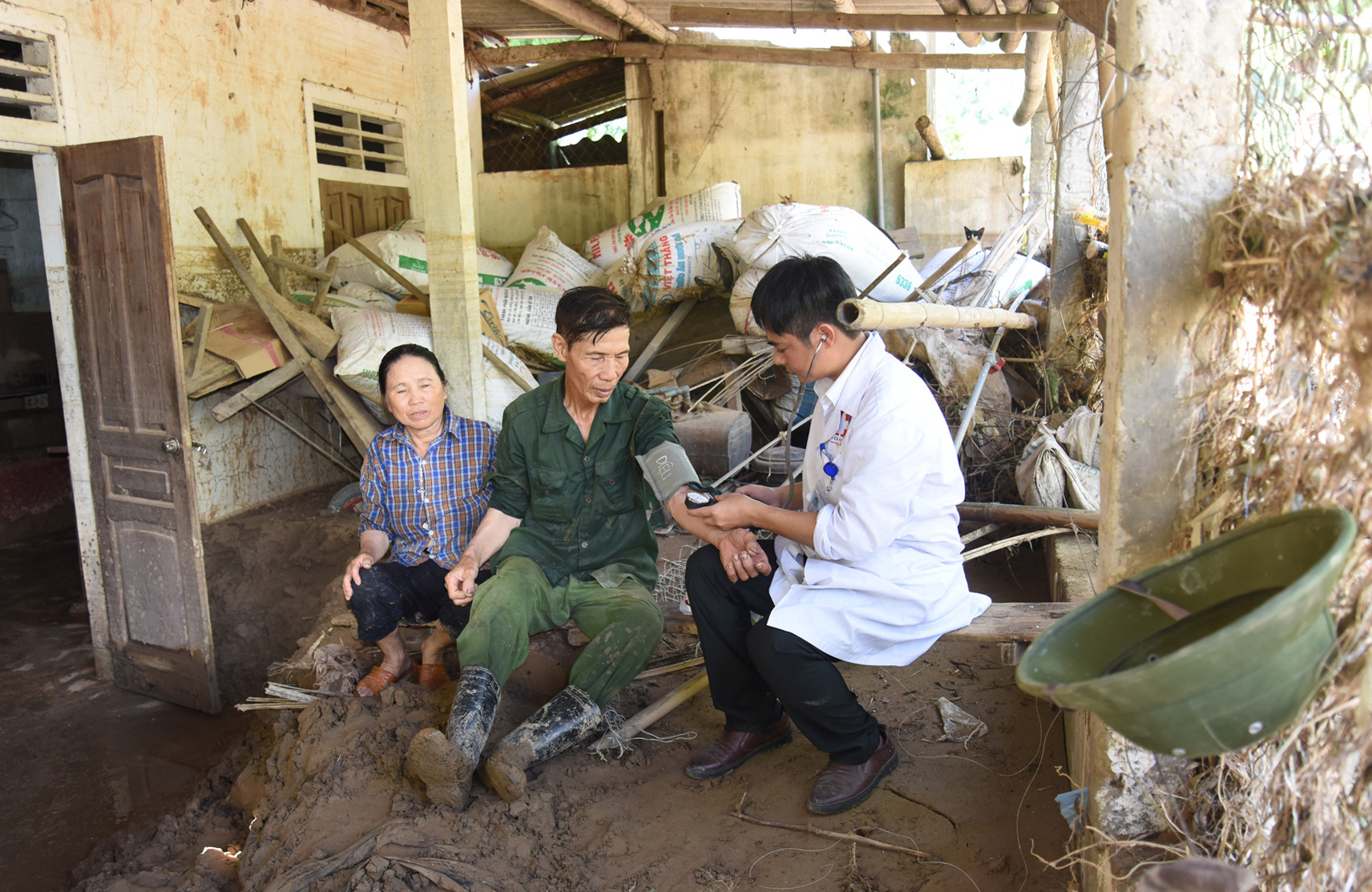 |
| Doctors examine people in disaster-stricken areas. Photo: Thanh Chung |
At this time, Vietnam in general, Nghe An in particular, is entering the rainy season. With this weather, if a case of the disease appears in the community, it is extremely dangerous. The reason is that this weather is very favorable for the SARS-CoV-2 virus to develop. In addition, because we are fighting the epidemic well, people have become complacent. Many people go out and go to public places without wearing masks or limiting contact. They lack awareness to protect themselves and the community. From not wearing masks, medical workers are very worried because in this rainy season, flu is also very developed, in addition to Covid-19, there are seasonal flu viruses, A, B... Does anyone know what kind of flu virus it is?
It must be said that: We absolutely must not be negligent or subjective about the Covid-19 epidemic. The authorities need to continuously strengthen monitoring, resolutely prevent sources of infection, isolate and thoroughly handle outbreaks if any; continue to implement centralized isolation and testing measures. People need to raise awareness to protect themselves and the community by wearing masks in public places, on public transport and at medical facilities; and strictly follow the Ministry of Health's recommendations on Covid-19 prevention and control.
PV: Thank you!



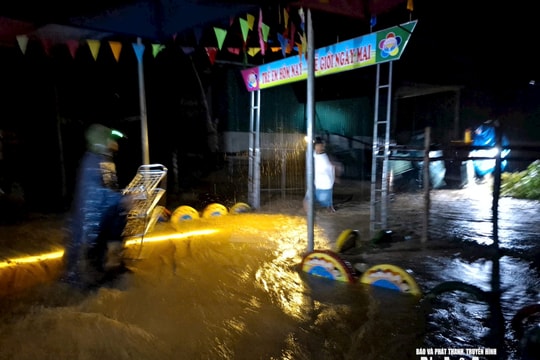
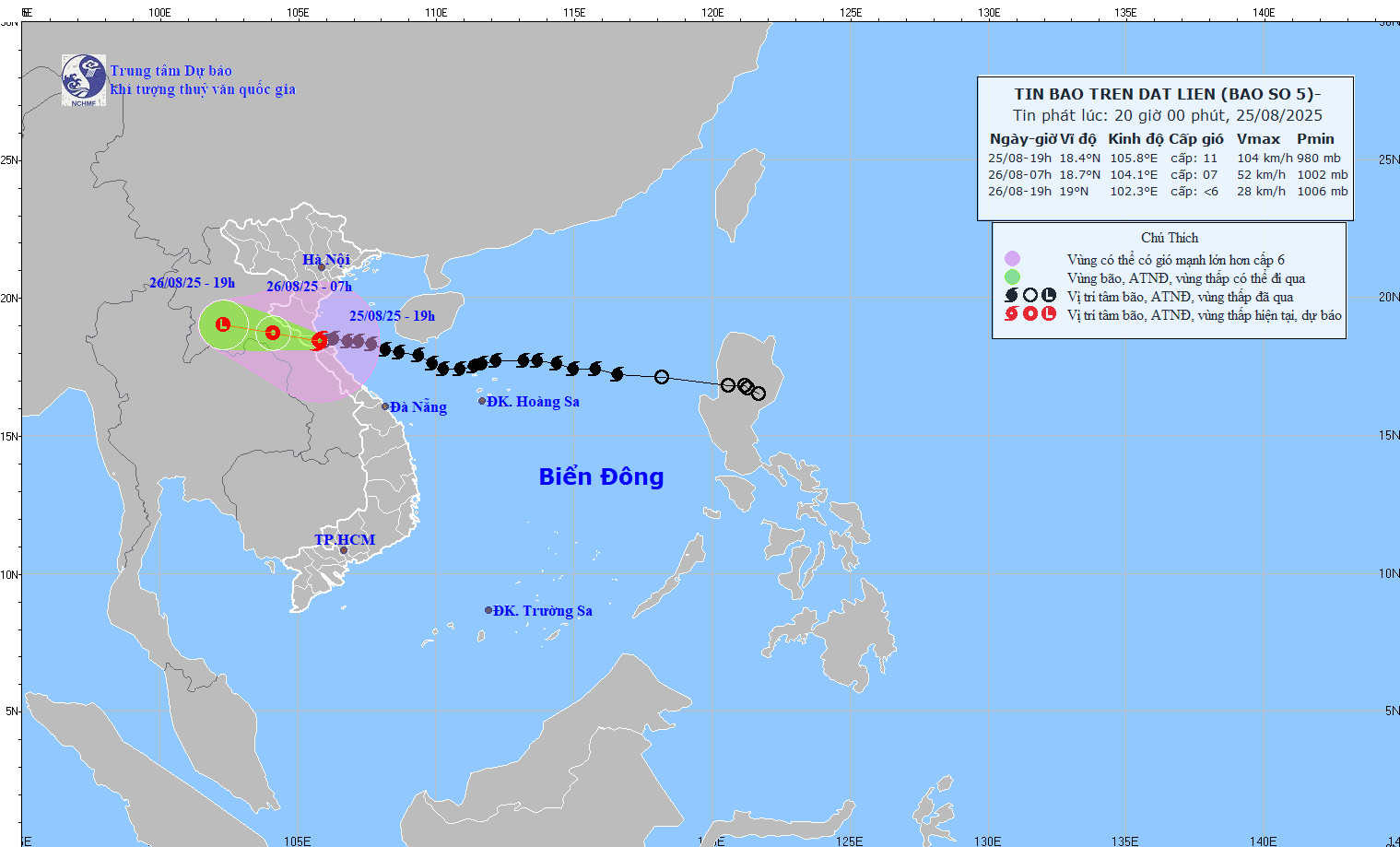

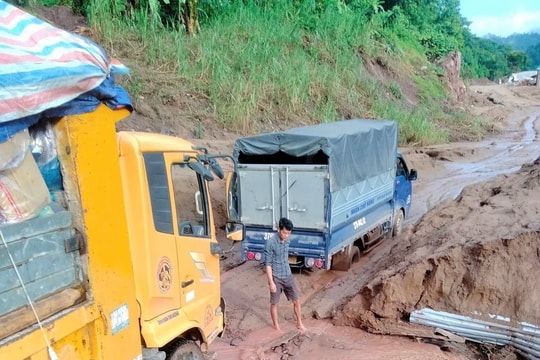
.jpg)
